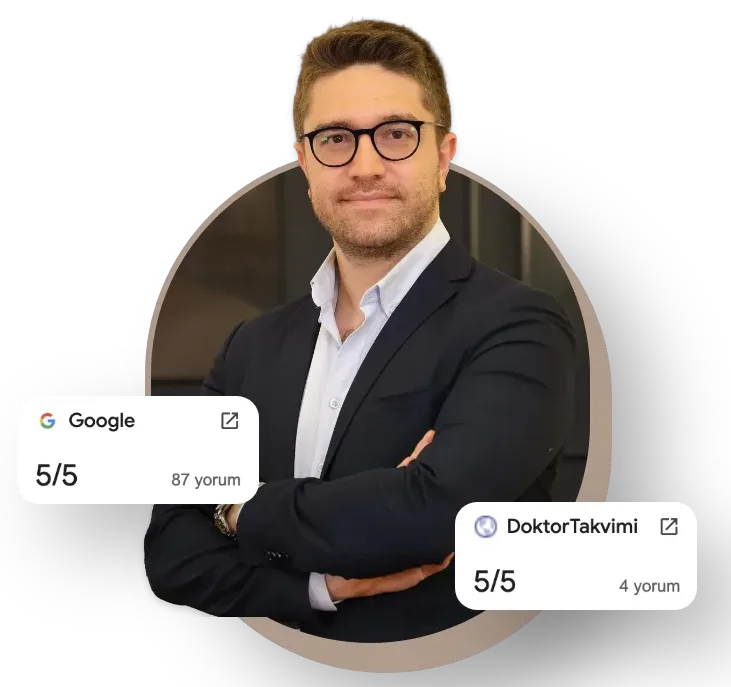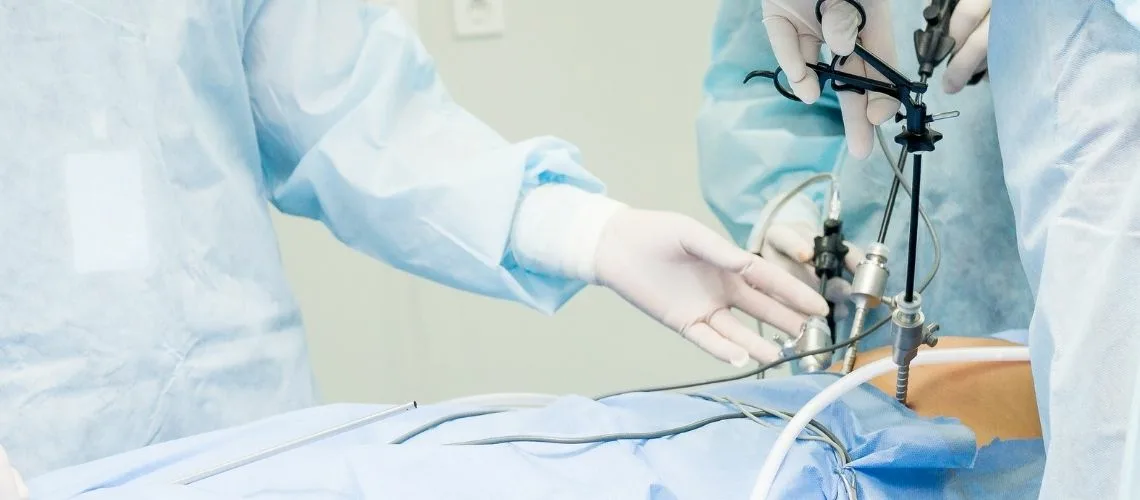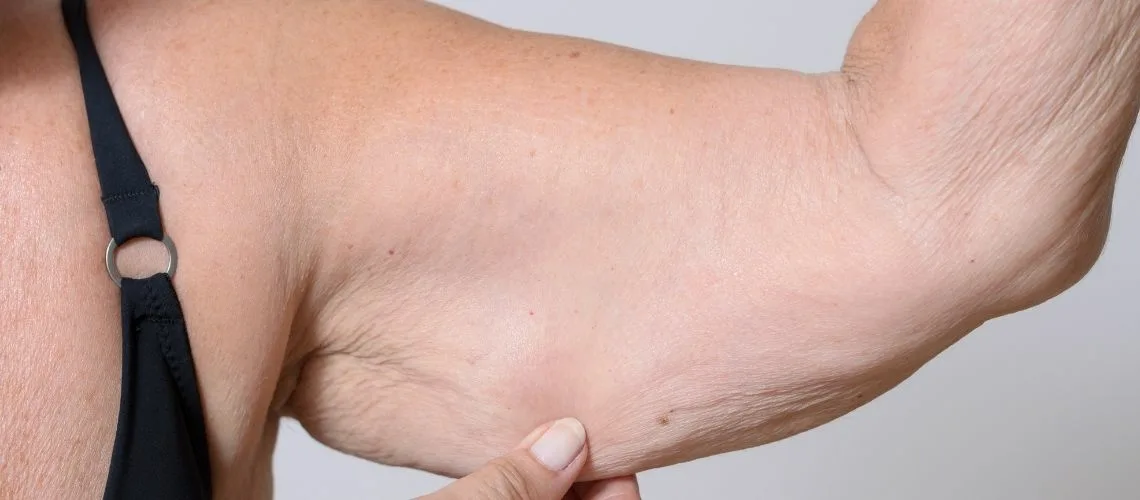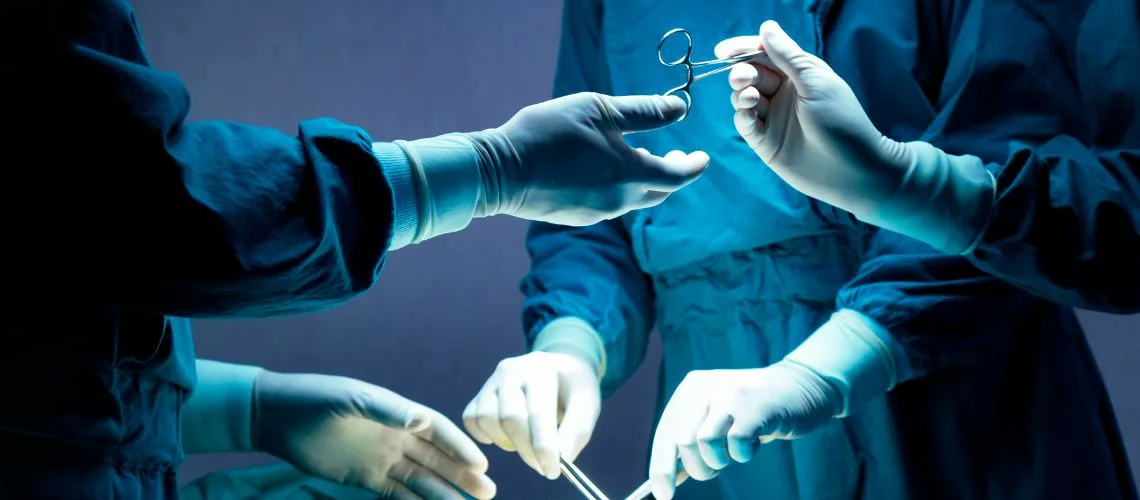Plastic surgery can significantly increase self-confidence by addressing physical concerns. Procedures such as rhinoplasty, breast augmentation, and facelifts help patients feel more comfortable in their appearance, improving self-esteem and daily interactions.
Psychological benefits of plastic surgery are well-documented. Correcting perceived imperfections reduces anxiety and enhances mental well-being, allowing individuals to focus on personal and professional development without self-consciousness.
Improved confidence after surgery often translates into social and professional gains. Patients report greater satisfaction in relationships and careers, demonstrating how aesthetic improvements can influence overall life quality.
Long-term self-esteem improvements depend on realistic expectations. Plastic surgery is most beneficial when combined with healthy lifestyle choices and positive self-image, ensuring stable psychological outcomes after treatment.
How Does Plastic Surgery Affect Self-Confidence?
Plastic surgery interventions directly impact self-confidence because they address areas a person perceives as “problems” or “flaws.” Simply put, when someone constantly fixates on certain parts of their appearance in the mirror—disliking those areas—these feelings can extend into social interactions and how they express themselves. For example, a person unhappy with the shape of their nose may reflexively cover it when speaking in front of an audience or avoid being photographed. Over time, such behaviors can erode self-confidence and make it hard to engage in social life. Once this subjective discomfort is alleviated through plastic surgery, it’s as though one finally removes a pebble that’s been stuck in their shoe for a long time. Once that pebble is gone, walking—and, in turn, living—becomes more comfortable and self-assured, just as resolving a cosmetic concern can bring similar relief and a boost in self-confidence.
Yet the ability of plastic surgery to boost self-confidence is not always a matter of a single variable. A person’s preoperative mental state, the postoperative care process, and the attitudes of their social circle all factor into the outcome. In particular, if someone has significant depression, an anxiety disorder, or a body image disorder (for instance, certain psychiatric conditions in which they see their entire body as warped or unattractive), a mere change in appearance may not be enough. Just as washing the exterior of a long-neglected car won’t fix engine problems, simply “fixing appearance” without professional help for underlying emotional issues can prove inadequate.
Additionally, the effects of plastic surgery can shift over time. For instance, while a rhinoplasty may greatly boost self-confidence in the short term, a person may develop different worries later in life. Research indicates that individuals with low self-esteem at the outset often experience more substantial confidence gains post-surgery, since they achieve a “release” from their primary area of concern and thus enjoy a discernible improvement in life quality. In some cases, a small tweak can spark big psychological changes—provided that tweak aligns with genuine needs and realistic expectations.
Which Plastic Surgery Procedures Boost Self-Confidence?
There are many types of aesthetic operations, and each can affect self-confidence in different ways. Generally, the most demanded interventions can be grouped into three broad categories: facial aesthetics, body contouring, and genital aesthetics.
Facial Aesthetics: The face is the main arena of social interaction. People typically notice one’s facial features first upon meeting. Hence, details like nose shape, drooping eyelids, or protruding ears can strongly influence how a person carries themselves. Someone who feels insecure about their ears, for instance, may always try to hide them with their hair, creating ongoing unease. After a straightforward otoplasty, this individual can wear their hair however they please and often notes a clear boost in self-confidence.
Body Contouring: Procedures such as breast augmentation, tummy tucks, and liposuction aim to correct body lines and proportions. Following pregnancy or major weight loss, people may be troubled by saggy abdominal areas or pockets of fat in certain spots. Imagine discovering your favorite piece of clothing in the closet no longer fits; the emotional discomfort this causes is akin to how disproportionate body features can make someone feel. These surgeries can help someone feel comfortable again in their own skin.
Genital Aesthetics: Although discussed less frequently in public settings, genital aesthetics can greatly influence the confidence of both women and men. Procedures like labiaplasty or vaginoplasty in women and surgeries addressing penile issues in men can improve both sexual well-being and overall self-esteem. Yet making decisions about such surgeries demands especially careful psychological assessment, given the privacy and sensitivity of the area.
Does a Rhinoplasty Strengthen Personal Confidence?
Because the nose is located in the center of the face, it is one of the first areas people notice. Individuals who feel, “I don’t like my nose,” can experience significant self-esteem issues, often starting in their teenage years. Relatives or friends might say, “It suits you; you’re exaggerating,” but it might still not be enough—how we perceive ourselves can hold more sway than external opinions.
Rhinoplasty is considered among the most effective procedures for correcting such self-perception. For example, if someone believes their nose is too large relative to their facial proportions or if a noticeable bump makes them uncomfortable in profile, a surgical intervention that delivers the desired look can open a new window on their internal sense of self. Of course, this “window” is not magic; the surgery, anesthesia, and recovery all require patience and diligence. But when the outcome is successful, it is rare for someone to say, “I wish I hadn’t done it.” More often, they report, “I’ve finally achieved the look I wanted—I feel so relieved.”
The confidence boost from nose surgery tends to be greatest for those who encountered social difficulties in daily life because of their nose. For instance, a young individual who endured bullying over a prominent nasal bridge during school might feel, post-surgery, like they’ve been reborn. Freed from obsessing over their nose, they can now focus on their studies, hobbies, or social life with ease. That said, managing the recovery appropriately is crucial. Some patients struggle to accept their new nose, feeling alienated from it if they have lived for years with a large or curved nose. In such situations, psychological support, wearing protective masks until healing is complete, and giving oneself time to adapt can further reinforce self-confidence.
Does Breast Augmentation Improve Body Image and Self-Confidence?
Breast augmentation is one of the most in-demand aesthetic procedures among women. In simple terms, many women aim for a more balanced, feminine silhouette. Someone with very small or asymmetrical breasts might suffer self-confidence issues ranging from feeling restricted in the clothes they can wear to being dissatisfied with their appearance in the mirror. Like how the living room is the focal room of a home, the bust is typically a highlight of the female body. Its shape and proportions play a big part in overall body lines and the fit of clothing.
With breast augmentation, a person can select an implant size and shape to achieve the body balance they want. Especially after childbirth or substantial weight loss, the loss of fullness in the breasts can lead to a sense of “I’m incomplete.” Through surgery, restoring breast volume can help physically and serve as a psychological boost. When a patient remarks, “Now I can wear the swimsuits I’ve always wanted without hesitation,” they are really saying their self-assurance has risen markedly.
Still, managing expectations is key. Opting for overly large implants might produce unwanted outcomes, such as back pain or an unnatural look. It is generally best to agree on a size close to the surgeon’s recommendation that aligns with the patient’s vision. Postoperative care is another significant factor influencing both satisfaction and confidence. Adhering to suggestions like temporarily avoiding heavy activity, using a recommended support bra, and attending follow-up visits are crucial for a smooth, uplifting experience. In addition, supportive feedback from social circles can further encourage the patient. Some worry, “Did it end up looking too artificial?”—the ideal way to dispel those concerns is a combination of the surgeon’s expertise and sincere backing from family and friends.
Is There a Link Between Genital Aesthetics and Greater Confidence?
Genital aesthetic procedures are rarely openly discussed but can profoundly affect the self-confidence of both women and men. Women’s treatments, such as labiaplasty (reshaping the inner labia) or vaginoplasty, and men’s procedures, addressing issues like penile curvature, can significantly enhance one’s sexual experience and overall self-esteem. Confidence here is boosted in two ways: improving body image and elevating the quality of sexual life.
Excess or asymmetric labia in women, for instance, can cause discomfort, irritation in daily life, or embarrassment and pain during intercourse. Post-labiaplasty, many patients share comments like, “Now I feel more comfortable and feminine.” This “feminine” feeling goes beyond just partner interactions; it relates to accepting one’s body. In men, surgeries related to penis shape, length, or girth can diminish feelings of “not measuring up.” When someone feels more at ease with their own body—like a musician comfortable with their instrument—they typically approach everyday life and social relationships with enhanced confidence.
Again, however, it’s vital that expectations be in line with reality. Being exposed to overly exaggerated examples in the media or on the internet can make people seek “perfection.” Yet every body is unique, and chasing a “standard” genital appearance often proves unrealistic. Also, any complications from these procedures can end up undermining confidence. Ultimately, thorough psychological and physical evaluation prior to such operations allows for a healthier step on one’s journey toward self-acceptance.
How Does Body Contouring Surgery Affect Your Self-Perception?
Body contouring surgery can bring a dramatic “lift and shake” for those dealing with sagging or looseness, often after major weight loss or pregnancy. Tummy tucks (abdominoplasty), arm lifts, thigh lifts, and liposuction focus on shaping the body and removing excess tissue. It’s like wearing clothes that finally fit—most people experience a sense of “at last, my body is what I want it to be.”
The confidence boost here doesn’t come solely from an aesthetic gain. People who have lost considerable weight may have spent years battling obesity, leaving them with a damaged body image and the belief “Even if I lose weight, I won’t look the way I want.” Yet removing the excess skin and refining body lines can lead individuals to rediscover themselves. They may cast aside behavior such as avoiding social events or feeling embarrassed about certain outfits, transitioning to a lifestyle that’s more energetic and self-assured.
Nevertheless, body contouring should not be viewed as “just removing extra bits.” After the procedure, a demanding recovery period and enduring lifestyle changes are expected. For instance, if a patient who’s had a tummy tuck does not maintain a healthy diet or an exercise program, the outcome might not be long-lasting, and they might face sagging or weight regain down the line. Those who choose such surgeries must continue nurturing their bodies—like a gardener tending flowers—lest the initial confidence surge fade into disappointment.
What Role Does Social Support Play in Postoperative Confidence?
The plastic surgery journey doesn’t begin and end on the operating table. Sometimes, loved ones might respond skeptically, asking, “Do you really need this?” Meanwhile, after surgery, the patient may expect emotional and practical support from friends and family. Being bedridden at first, dealing with dressings, or having to rely on pain medication can weigh on one’s spirits.
This is where social support proves crucial. Positive, understanding social circles reinforce any increase in confidence. Immediately post-surgery, when a patient is adapting to their new body, affirmation and encouragement from others can be vital. In contrast, negative or mocking approaches from close friends or relatives can disrupt the psychological process. Just as you feel encouraged when those around you cheer for your successes at a new job, plastic surgery patients also benefit from a supportive environment—allowing them to feel “I made the right decision.”
Besides family and friends, professional support is also important. Regular check-ups with the plastic surgeon facilitate early detection and treatment of complications. If needed, seeking help from a psychologist or psychiatrist can empower the individual emotionally, especially if they grapple with unexpected results. Some patients experience significant disappointment if the outcome doesn’t meet expectations, which can lead to anxiety or depression. Under professional guidance, the patient’s results can be objectively evaluated, and steps can be taken to rebuild confidence.
Do Younger Patients Gain More Confidence from Plastic Surgery?
Teens and those in their early 20s often face heightened worries about their bodies because social acceptance, peer approval, and self-image hold a critical place in identity development. Accordingly, operations like nose reshaping, ear pinning, or treatments for acne scars are popular among younger individuals. The question is: “Do younger patients experience a bigger confidence boost compared to adults?” The answer is not always “absolutely yes,” since psychological assessment is essential.
Undergoing cosmetic surgery at a young age can equip someone to face the future with fewer burdens. For instance, a high school student teased over ear shape may enjoy significant relief after a simple otoplasty, possibly improving relationships, school performance, and more. But for younger individuals, an incomplete identity structure and unrealistic expectations pose a risk. Entering surgery with “I want to look just like this celebrity” or “I want a completely different face” can lead to disappointment and fluctuating self-esteem post-surgery.
Additionally, any operation done before the body’s physical development is complete has to be carefully considered for its long-term effects. Another crucial aspect is family consent and encouragement. Individuals under 18 usually require parental consent. A family-backed decision can offer psychological support both before and after surgery. Still, the fundamental principle is having a professional team evaluate the youth’s needs and expectations, sometimes deferring the procedure or suggesting counseling if necessary for the best long-term outcome.
Can Plastic Surgery Resolve Psychological Concerns about Appearance?
There is no question that plastic surgery can alleviate anxieties about one’s appearance. However, surgery alone may not suffice to handle deeper psychological concerns. For example, those with severe body image distortion, such as body dysmorphic disorder (BDD), might simply shift their focus to a new “flaw” after surgery. Thus, thorough psychological screening is critical in preoperative candidate selection. If the individual’s difficulties stem from feeling generally “unattractive” or “worthless,” simply changing their looks can offer only partial relief.
Still, one cannot overlook plastic surgery’s capacity to relieve specific appearance-related stress. For instance, someone who hides their teeth when speaking, because they dislike them, might feel much more confident and open socially after a dental aesthetic procedure (like a smile makeover). In that sense, cosmetic interventions can make a positive psychological difference. However, if deeper issues like social phobia or depression drive their overall distress, addressing these problems might require therapy, medication, or other mental health resources.
Additionally, if the individual does not feel accepted or affirmed by peers post-surgery—or if they do not get the compliments they hoped for—they may wonder, “Was it all worth it?” leading to disappointment instead of greater confidence. It’s akin to renovating your home and then failing to achieve the ambience you imagined. In contrast, adequate psychological support during both the pre- and postoperative phases can help manage expectations, ensuring the patient can cope with any surprises while building lasting self-confidence.
How Are Postoperative Satisfaction Levels Related to Confidence?
Anyone considering plastic surgery wonders, “How satisfied will I be after surgery?” Satisfaction levels are virtually intertwined with self-confidence. If someone steps in with realistic expectations and achieves a result close to what they envisioned, satisfaction and confidence usually rise. Think of it as a cycle: growing confidence leads to being more active socially; being more active yields positive social feedback; that feedback further bolsters self-confidence.
Still, even if the surgical outcome is technically excellent, individuals may remain unhappy if they are discontent deep down or if they expected a “complete identity overhaul.” Put differently, satisfaction is not solely tied to technical success. The surgeon’s expertise, procedure details, and the patient’s anatomy are crucial, but so is the patient’s mental framework. Someone might get a “perfect” new nose yet remain unfulfilled because they have other unresolved problems—leading them to say, “That didn’t really help.”
Moreover, maintaining satisfaction after surgery demands embracing the new appearance and caring for the operated area. For instance, returning to intense workouts immediately after breast enlargement or abandoning a healthy lifestyle after body contouring can degrade results, turning “the surgery wasn’t successful” into a perception that hurts both confidence and satisfaction. If, however, the individual acts responsibly, attends follow-ups, and respects the value of the achieved result, postoperative satisfaction can become a long-term foundation for heightened self-confidence.
Does Plastic Surgery Offer Long-Term Confidence Benefits?
Plastic surgery can produce lasting benefits when outcomes are successful and expectations realistic. Here, “long-term” usually means a continuing sense of relief or comfort with one’s appearance over years. Following a rhinoplasty, for instance, someone might not look in the mirror daily thinking, “How wonderful!” but might still reflect on how troubled they felt before surgery and gratefully say, “I’m so glad I did it.” Feelings of “I’m glad” can sustain self-confidence in an ongoing way.
On the other hand, natural processes like aging or weight fluctuation can, over time, undermine surgical enhancements. While someone with a face-lift might gain a 10- to 15-year younger look, aging inevitably continues, and new sags or wrinkles may appear. Thus, plastic surgery does not freeze time but does offer a meaningful respite, letting individuals feel better about themselves in the interim. Achieving the best long-term benefits typically calls for healthy lifestyle habits and routine check-ups.
In some cases, the “psychological footprint” of surgery can bring lasting rewards. Reconstructive procedures—such as rebuilding the breast after a mastectomy—can help someone regain bodily integrity, initiating emotional recovery. As they see their surgical scar or new shape, they might recall and overcome tough experiences, feeling empowered by the progress they’ve made. This empowerment can keep confidence alive. Ultimately, sustained confidence depends on both surgical success and the individual’s subsequent life choices and psychological adaptability.
Are the Confidence Outcomes Different Between Aesthetic and Reconstructive Surgeries?
Aesthetic procedures typically enhance or refine a healthy body part to meet personal preferences—like enlarging naturally small breasts or smoothing a bump on the nose. Reconstructive surgeries, conversely, address and repair tissues or organs damaged by injury, cancer, or congenital anomalies, striving to restore previous function and appearance (for example, reconstructing someone’s face contour after an accident).
Both can positively influence confidence, but the key difference often lies in the reason for surgery and the patient’s emotional state beforehand. Reconstructive surgeries frequently address the loss or alteration of a previously normal body structure, so the feeling of “missing what I once had” tends to be strong. Successful results may bring a profound surge in confidence because they remove or resolve that traumatic sense of loss.
With aesthetic surgeries, people aim to improve a generally normal anatomy to feel more attractive or proportionate. Here, the confidence boost often comes from a sense of satisfying the desire for “improvement,” rather than “returning to normal.” Hence, the emotional starting and ending points differ. Reconstructive patients typically focus on getting back to a “pre-trauma” state, while aesthetic patients aspire to go “beyond normal.” But in either case, patient satisfaction post-surgery can significantly mold their quality of life and mental state. The key is ensuring the patient has support and realistic expectations through all phases.
How Do Societal Beauty Standards Affect Plastic Surgery Decisions and Self-Confidence?
In today’s world, social media has drastically accelerated transformations of beauty ideals. Previously, magazine cover models set the standard; now, “Instagram aesthetics”—specific facial features or body proportions—often capture people’s imaginations. Examples include defined jawlines, full lips, or an hourglass figure. This phenomenon can cultivate an “ideal beauty” obsession, particularly among younger individuals or those more prone to social media’s influence. As a result, plastic surgery decisions can stem from such a perspective, with the person aspiring to fit into standards projected by wider society rather than their personal sense of self.
Societal beauty standards can serve as motivation, but they can also severely undermine self-confidence if the individual tries to meet unrealistic goals. They may insist on procedures that don’t suit their natural body, leading to dissatisfaction. Pictures of celebrities that appear near-perfect thanks to filters or photo editing can create unreachable ideals. Trying to resemble “someone else’s body” through surgery is a prime recipe for disappointment. Additionally, social stigmas around cosmetic enhancements—like “She’s not natural because she had work done” or “True beauty requires no surgery”—may dampen a person’s post-surgery confidence. This can result in the patient feeling they need to hide their decision.

Op. Dr. Erman Ak is an internationally experienced specialist known for facial, breast, and body contouring surgeries in the field of aesthetic surgery. With his natural result–oriented surgical philosophy, modern techniques, and artistic vision, he is among the leading names in aesthetic surgery in Türkiye. A graduate of Hacettepe University Faculty of Medicine, Dr. Ak completed his residency at the Istanbul University Çapa Faculty of Medicine, Department of Plastic, Reconstructive and Aesthetic Surgery.
During his training, he received advanced microsurgery education from Prof. Dr. Fu Chan Wei at the Taiwan Chang Gung Memorial Hospital and was awarded the European Aesthetic Plastic Surgery Qualification by the European Board of Plastic Surgery (EBOPRAS). He also conducted advanced studies on facial and breast aesthetics as an ISAPS fellow at the Villa Bella Clinic (Italy) with Prof. Dr. Giovanni and Chiara Botti.
Op. Dr. Erman Ak approaches aesthetic surgery as a personalized art, tailoring each patient’s treatment according to facial proportions, skin structure, and natural aesthetic harmony. His expertise includes deep-plane face and neck lift, lip lift, buccal fat removal (bichectomy), breast augmentation and lifting, abdominoplasty, liposuction, BBL, and mommy makeover. He currently provides safe, natural, and holistic aesthetic treatments using modern techniques in his private clinic in Istanbul.









